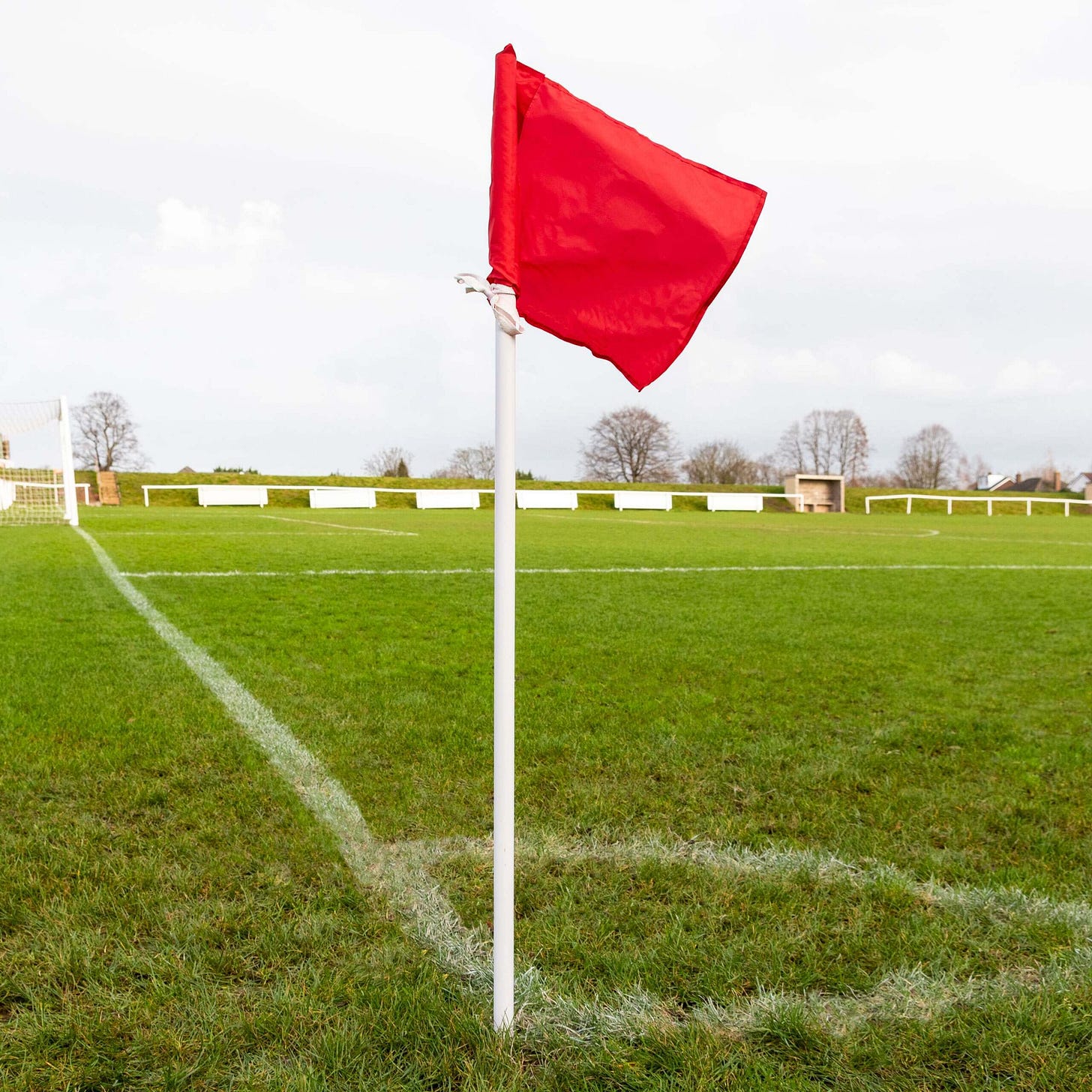Pitching Offside
Why football isn't my game
I’m surprised to find myself writing about football. It's my least favourite sport.
I wasn't brought up on it, and the 1970s spectacle of violence still hovers menacingly in my imagination.
Many close family members and friends are passionate football supporters, sticking with the same team for decades. Others - all men - have a team that is "theirs" but they follow it with something like obligation as "it's what men do." I spent a few years in the 1990s following Newcastle United with something a little warmer than disinterest - mainly because of a nostalgic connection to Kevin Keegan and the Liverpool football sticker heroes of the 1970s.
But I've never been able to move outside of three sticking points: the monopoly, the nationalism and the emotional substitution.
If I told you that children were being brainwashed into making a lifelong commitment to an organisation that would own them for the rest of their lives and part them from huge amounts of cash, you might flinch. Call me cynical, but I can't help feeling this way about the power exerted by football over fans. The football team is the most powerful of monopolies. It's not done to chop and change who you support, so you're stuck with your chosen team, and the sport's demands on you. The more footballers are paid, the more that tv access is restricted to pay channels, the higher the frequency of strip re-issues, the deeper the exploitation.
Maybe I wouldn't mind so much about football is if wasn’t served up continually as an expression of nationalism. Football belongs to everyone - England certainly isn't its home. I know that I am particularly allergic to flag-waving, given my Jewish relatives' experience of the Anschluss in Austria, and I'm proud of being both British and European. But I feel my throat closing up at the relentlessly fierce expressions - facial, physical, verbal - of allegiance to a national team, as if victory were some sort of birthright.
It's a truism that people - men in particular - can find an emotional outlet in sport when they don’t otherwise feel they have permission to show feelings. "Did you see the game last night?" is a great opener for an office chat, but sometimes it goes no further. And I will never understand the abuse and booing of one's own players - this is emotional illiteracy at its worst. Perhaps I'm being judgemental and sexist, but I feel sad if moments of shared football anguish become a substitute for a lasting connection, a kinder outlet. The professional sport of football matters deeply to so many people - but it is only a game and you're only a spectator.
However, I concede that there are great things to be learnt from the "beautiful game." The timing of my venting is related directly to the England manager's resignation. Gareth Southgate's Euros experience has given me reason to find respect for the sport. His leadership has shown that it's possible in football to be tough, competitive and successful as well as driven by integrity and compassion. My abiding twin images will be Southgate's full-throated roars of triumph, and his close, consoling hugs for distraught members of his team.
He follows the inspirational New Zealand Prime Minister Jacinda Ardern in combining qualities others say can't coexist, and, when they think it's all over, knowing when to go.



